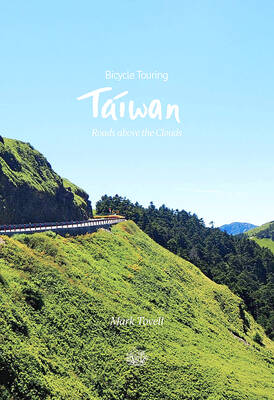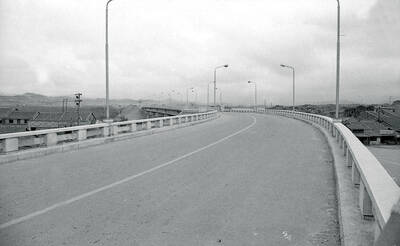Over the past couple of years, Taiwan has produced a number of intriguing collaborations that have brought traditional Chinese opera styles into collision with Italian opera, avant-garde theater, Western orchestral music, contemporary dance and every imaginable type of multimedia. Mazu’s Bodyguards (海神家族), which premieres today at the National Theater, brings together theater director and writer Jade Chen (陳玉慧) with gezai opera (歌仔戲) diva Sun Tsui-feng (孫翠鳳), founder of Ming Hwa Yuan Taiwanese Opera Company (明華園歌仔戲團), to create what is described as a New Age gezai opera.
Mazu’s Bodyguards is written and directed by Chen and based on her hugely popular novel of the same name published in 2004. The novel won the Jury Prize at the inaugural Dream of the Red Chamber Award (第一屆紅樓夢獎) for Chinese literature in 2006 and picked up the prize for Best Novel in the Taiwan Literature Awards (台灣文學獎) in 2007.
Chen said that she had been encouraged to adapt the book for the stage following the passionate response elicited by the work from readers around the world. Drawing on her own family history, Chen looks back over the social and political upheavals experienced by Chinese people in modern times, as a result of which many of whom, like herself, are now dispersed across the world. At a rehearsal on Wednesday, Chen, who has spent much of her professional life in Europe and the US, said that this work was a gift to Taiwan for all it has given her.
With Mazu’s Bodyguards, Chen is making a return to the Taiwan stage for the first time in 20 years, though her work has had a constant presence here, reaching a new height of popularity with the success of The Personals (徵婚啟事, 1998), a film staring Rene Liu (劉若英), based on a book by Chen.
Mazu’s Bodyguards is a hugely ambitious work that aims to deconstruct gezai opera and build it again from the ground up as a medium for contemporary theater. This is a distinctly unsettling experience, as the traditional Chinese orchestra has been replaced by a fusion of contemporary classical and electronic music, removing the musical punctuation of drums and cymbals that are central to Chinese opera. Sun, whose Ming Hwa Yuan Taiwanese Opera Company is a leading innovator in gezai opera, said that this new work presented unique challenges for the artists. It also challenges the expectations of audiences.
Chen, who has never shied away from throwing down the artistic gauntlet to audiences, said that she believed this new dramatic work was an important step in bringing gezai opera into the modern world. “Traditional theater needs to be modernized,” Chen said. “There are many obstacles to this process. This is just one step in a process that many people are working on.”
Boldly experimental productions of traditional Chinese opera have had a mixed reception in recent years, and violent tampering with the musical structure of Chinese opera has produced some rather unhappy results.
Chen did not stop with the introduction of a new type of music for this New Age gezai opera. She also uses multimedia projections, contemporary dance and experimental theater techniques to build up her story of a doomed romance that crosses national and ideological lines. The cast also crosses gender and relationship lines, with Sun playing the lead male role and her daughter, Chen Shao-ting (陳昭婷), playing her lover. This rather facile transgression, along with the jarring juxtaposition of sharply contrasting musical styles, all seems to suggest that here is yet another story that will suffer through a too determined insistence on stylistic innovation.
Given the number of boundaries that Chen tries to straddle in Mazu’s Bodyguards, there is a clear effort to make this production strikingly modern, with all the attendant dangers of pushing limits further than they have been pushed before.

Last week, Viola Zhou published a marvelous deep dive into the culture clash between Taiwanese boss mentality and American labor practices at the Taiwan Semiconductor (TSMC) plant in Arizona in Rest of World. “The American engineers complained of rigid, counterproductive hierarchies at the company,” while the Taiwanese said American workers aren’t dedicated. The article is a delight, but what it is depicting is the clash between a work culture that offers employee autonomy and at least nods at work-life balance, and one that runs on hierarchical discipline enforced by chickenshit. And it runs on chickenshit because chickenshit is a cultural

My previous column Donovan’s Deep Dives: The powerful political force that vanished from the English press on April 23 began with three paragraphs of what would be to most English-language readers today incomprehensible gibberish, but are very typical descriptions of Democratic Progressive Party (DPP) internal politics in the local Chinese-language press. After a quiet period in the early 2010s, the English press stopped writing about the DPP factions, the factions changed and eventually local English-language journalists could not reintroduce the subject without a long explanation on the context that would not fit easily in a typical news article. That previous

It’s hard to know where to begin with Mark Tovell’s Taiwan: Roads Above the Clouds. Having published a travelogue myself, as well as having contributed to several guidebooks, at first glance Tovell’s book appears to inhabit a middle ground — the kind of hard-to-sell nowheresville publishers detest. Leaf through the pages and you’ll find them suffuse with the purple prose best associated with travel literature: “When the sun is low on a warm, clear morning, and with the heat already rising, we stand at the riverside bike path leading south from Sanxia’s old cobble streets.” Hardly the stuff of your

April 29 to May 5 One month before the Taipei-Keelung New Road (北基新路) was set to open, the news that US general Douglas MacArthur had died, reached Taiwan. The military leader saw Taiwan as an “unsinkable aircraft carrier” that was of huge strategic value to the US. He’d been a proponent of keeping it out of Chinese Communist Party (CCP) hands. Coupled with the fact that the US had funded more than 50 percent of the road’s construction costs, the authorities at the last minute renamed it the MacArthur Thruway (麥帥公路) for his “great contributions to the free world and deep